You have probably read Forbes earning reports, haven’t you? What if I told you a content bot writes those reports? Yes. Forbes uses Quill to write these reports. If you read them, you will find no mistakes as such. But what is missing is the ‘humane’ touch. These reports are just facts and data that are fed to the bot so that it can churn you out these reports. From the marketing point of view, Forrester predicts that AI-bots will replace 16% of jobs in the United States by 2025. And PricewaterhouseCoopers reports that AI will take over 30% of UK jobs. This is how it reads:
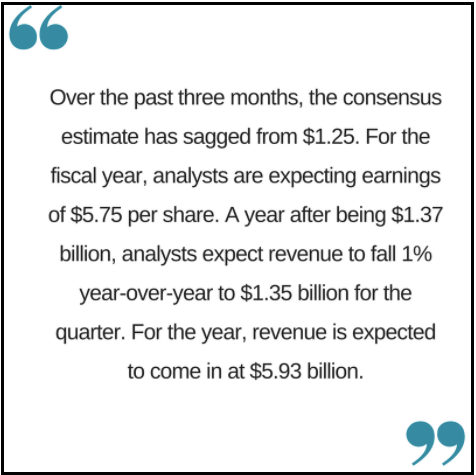
Source: Forbes’ Earning Report
As long as we are dealing with numbers and data, it is all fine. When you try to churn out something creative, content bots may not be your ideal choice. Although Gartner predicted that majority businesses will be churning out content written by intelligent bots, I’d say writing business content and marketing content are two different scenarios.
Let me tell you first what happens when you make a bot write your marketing content.
Author Julia McCoy, founder of Express Writers, pens down her experience with an AI-bot here. Julia tried her hands with Articoolo, an AI-content creator that promises to ‘create unique content in a flash.’ She even paid $1.90 for the article. And then this is what the bot ‘cooked’ for her.
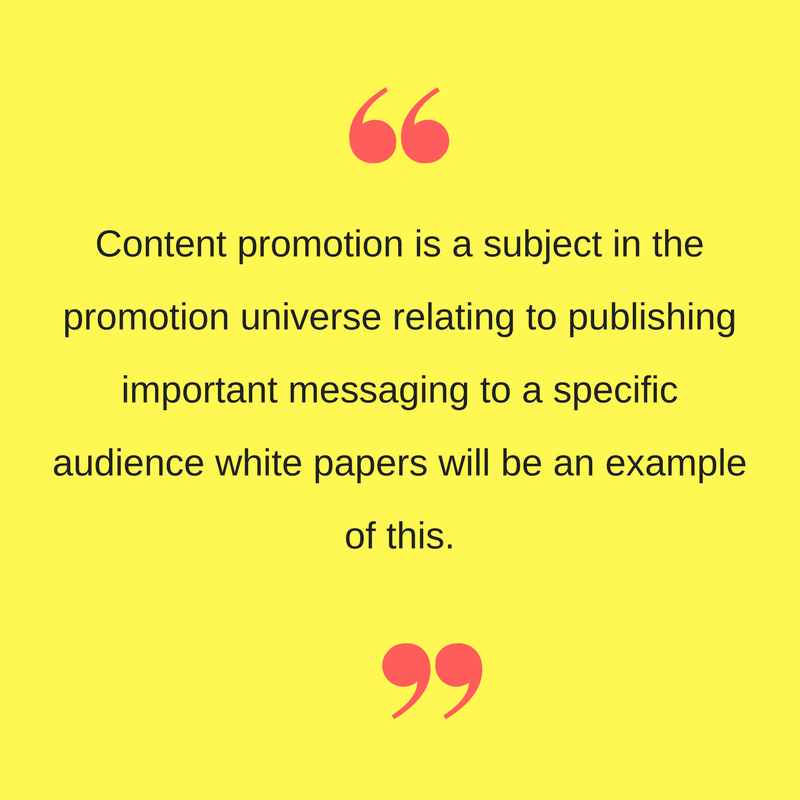
Sounding unconvincing, Julia ran it over again, only to get another awkward content piece which read something like this:
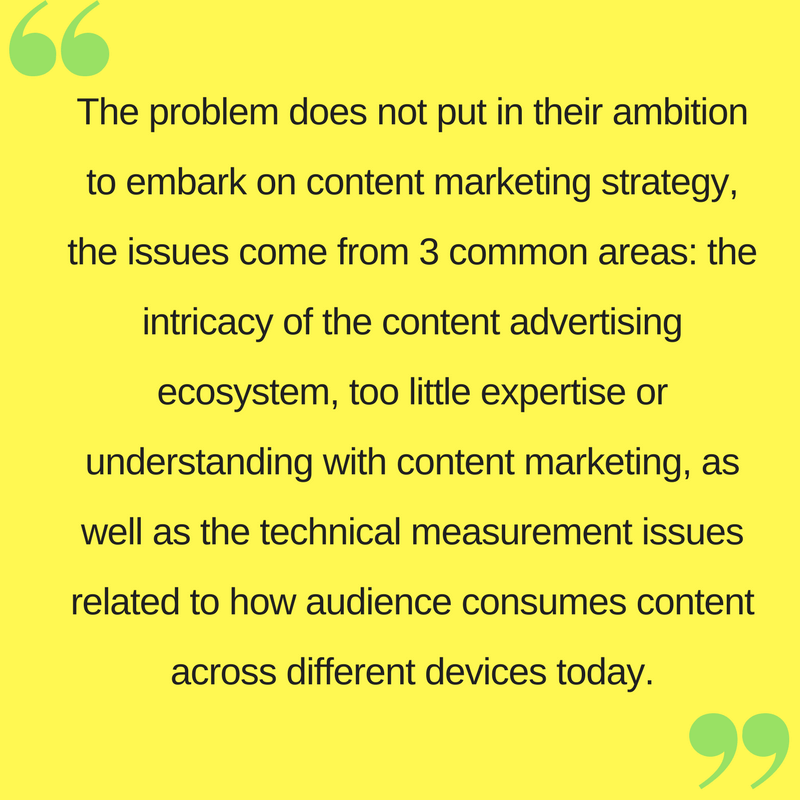
What????
Julia’s experience with content creating bot could not do justice to what she was looking for. Later, she went on to show how after research of three weeks she wrote the blog that opened with a story; a story that her readers could associate themselves with.
Content bots are intelligent. But they are not human. If you are looking to put together just numbers and statistics, these bots may come handy. If it is about establishing a connection with your readers, well, bots have a long way to reach there.
Human emotion can be written only by a HUMAN: Robot-proofing your content, anyone?
Let’s get honest. You cannot expect a bot to understand emotions and experiences. It is not meant to do that. It is intelligent, but only in the way, that deals with zero-emotions and only data.
For instance, have you used any AI- based content app? Like, say Grammarly?
If you are a writer, you have surely used Grammarly. Now, how often does it happen that Grammarly marks something as an error and you IGNORE it?
Yes. Very frequently.
Still Not an User of Aritic PinPoint Automation?
Grammarly has been created with a set of rules that often stand void when we are writing a story. Various spellings like ‘colour/color’ create confusions. I prefer to write “colour” while Grammarly finds that wrong because for it “color” is the correct spelling.

Don’t get me wrong. Grammarly is a fantastic content app. It does a great job of catching plagiarism, identifying the wrong use of commas or semicolons. I, myself, use it while proofreading my content. But I don’t take all the suggestions. If I had, my content would start reading like an incoherent mess of words with little sense in it.
Having said so many things, it turns the wheel pointer to a genuine fact-
AI-bots technologies cannot replace human writers. Let’s find out why.
How do you tell a robot to differentiate between random phrases and emotionally powerful phrases? You can make a bot write, but you cannot make it write something that will resonate with your target audience. Remember I mentioned, marketing writing is very much different from business writing. And that is exactly why, a marketer can never see results with a content that lacks creativity.
Next thing that a bot will never ever understand is EMOTIONS. When we sit to make a marketing plan, we try to steer our plans according to the behaviour of our target leads and customers across multiple channels. For instance, when I see my leads downloading some marketing assets and filling out a form, I know I can loop them in with more resourceful content. I cannot afford to send them list of data or numbers. Rather, I need to create contents that will resonate with their immediate last action and also urge them to subscribe to my platform.
I will create landing pages according to my business proposition, design my forms with questions that align with my target audience, and then create drip email series to take it over once they subscribe. For all these, I need tailored contents. I need nurturing words that will strike the right chord with their emotions. Also, I need sad stories, happy stories, stories that can excite or delight them enough to trigger interest.
I cannot imagine a bot understanding ’emotions’ in marketing because, believe me or not, it is a fact.
Last week, I was reading Blink The Power of Thinking Without Thinking by Malcolm Gladwell. In this book, Malcolm talks about various moral choices people make. Usually, such choices are driven by emotions and feelings. Moral choices do not ride high on analytics. It immediately reminded me of a situation when one of my customers had asked me a question that was not entirely related to my product but around the kind of technology I decided to use over others. It was related to certain choices I made. My artificial intelligence chat instantly replied with how many people are opting for this technology and a Wikipedia reference.
Basically, my system was flawed. It was a red alert for me. My content person immediately took over to write a nice blog on this same topic and also scheduled an email on the same. We did send this email to many of our existing customers who seemed fit for this.
All I am saying is, when you are trying to create a customer-brand relationship on a personal level, you need to the human touch. While chatbots are very intelligent and can resolve most issues, at times, you need human intervention.
According to a study done by Motista, emotional connection and customer purchase spend have a direct correlation. As the emotional connection goes up, so does the purchase spend.
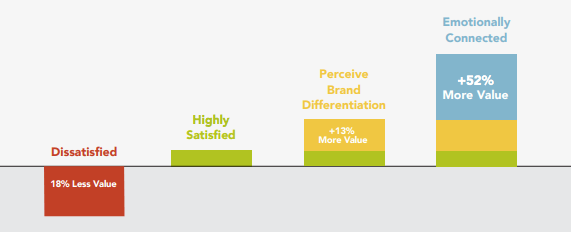
Why will brands never stop looking for human content creators?
Consumers are hungry for information and attention. Sending the right content to the right lead at the right time is what brands strive for. Businesses rely on effective content strategy as the building block for a long-term customer-brand relationship.
If a brand is negating the human-factor and emotional connection, then they are just pulling down the curtains before the show begins. Share on XAnd like Brian Clarke says, A writer runs the show.
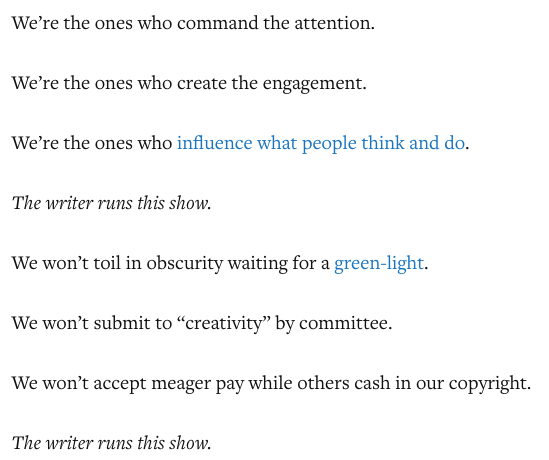
To avoid content shocks, it is essential that your content is human-based. Writers work towards answering the most pertinent question: why should my readers read my content, click on the links, and come back regularly for more interesting stuff?
The answers come back in words like valuable tips and advice, a friendly tone that gives a feel-good feeling, useful content that can help them make informed decisions, feel connected and intrigued while reading.
Content marketing at present is about “experience.” We like to listen to stories, read about them and get influenced by them. We tend to extend our trust to someone who recounts a situation that we are in and also tells how best that situation can be handled. We feel a connection with that person.
And this is only possible when there is a human element in it; when a human writes about his/her experiences in a friendly tone.
Like Gregory Ciotti, content marketing lead at Shopify says in The Psychology of Storytelling
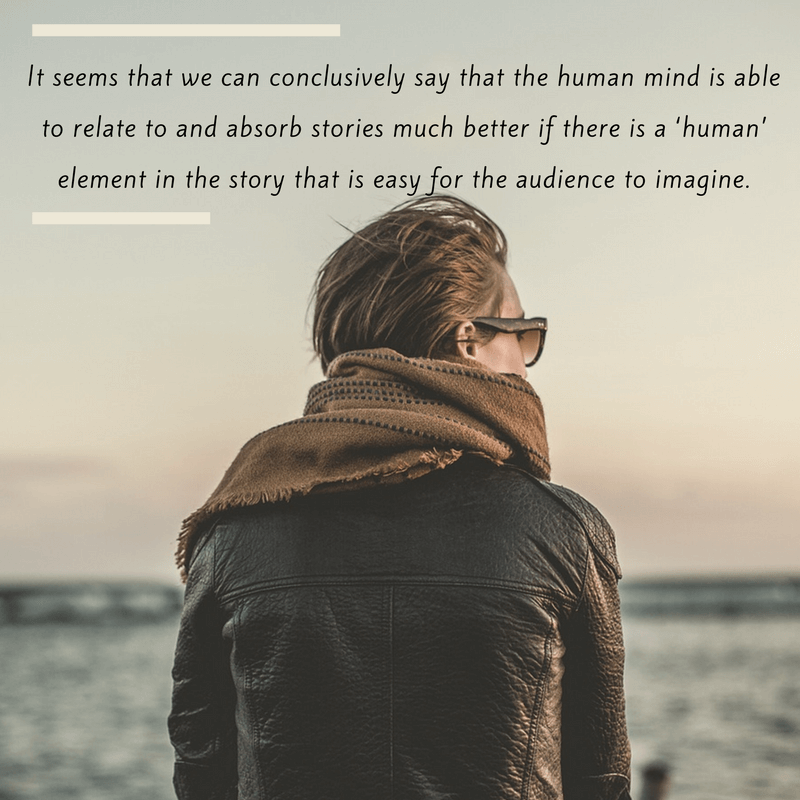
Once again though- How do I robot-proof my content then?
- Stop running behind SEO. Focus on creativity
- Include your audience experiences
- Sound genuine and read smooth
- Of course, don’t forget the ‘emotions’ and ‘feels’
Final takeaway?
Be human.
That’s the only way you can outperform the robots.
⭐ Are AI and bots the same?
No, they are not the same. Artificial Intelligence (AI) and chatbots are often used interchangeably, but they are different.
⭐ Is chatbot a robot?
A chatbot is a computer program designed to simulate an intelligent conversation with one or more human users. The word “bot” also refers to a specific instance of a chatbot software running on one computer system, often known as chatter or talker.
⭐ Can writing be automated?
Yes, writing can be automated. Nowadays, many companies are resorting to automated content generation in order to save time and money. However, most of these attempts end up being unsuccessful as the generated content is not engaging or lacks quality.
⭐ Can AI write better than humans?
The answer to this question is highly dependent on the use case. In some cases, AI can write better than humans. On the other hand, in some cases, humans might be able to write better content than AI because they can understand and convey emotions more effectively.
⭐ Is AI a threat to writers?
AI has been a threat to many professions, but writers are still safe. AI can’t create a story out of thin air. And it doesn’t have the creativity to make up an interesting plot or characters.
⭐ Who is the father of artificial intelligence?
The father of artificial intelligence is John McCarthy. He coined the term in 1956 and has been recognized by AI leaders as one of the founders of this technology.
⭐ Will AI take over copywriting?
The future of copywriting may be in the hands of AI writers. They are not a replacement for human copywriters, but they can provide assistance to content writers by getting rid of writer’s block and generating content ideas at scale.
⭐ Can AI replace human writers?
AI might not replace human writers in any era. However, they can provide assistance to human writers and help them do their job better and more efficiently.




10 Comments
I as a writer think you are correct. Writing is much more than providing factual reports. It should have experiences, humour, wit and a certain style attached to it. Otherwise, the content simply won’t be engaging or persuasive. Since we are talking about writing, I do take an interest in digital marketing and your articles have been both factual and persuasive at the same time.
Robots vs. Human Writers, still confused? No, as there the content marketing strategy cannot be handled by intelligent bots even.
A piece of content cannot be persuasive. As there the content marketing strategy cannot be handled by intelligent bots even. Thanks for updating the content.
A bot cannot handle the content marketing strategy. Thanks for updating this comprehensive article.
The intelligent bots cannot alone manage the content marketing strategy.
Even though bots have evolved and has over-powered the entire world of marketing, but still I feel that human can only manage the content marketing industry.
AI bots are the most significant marketing strategy, but it cannot replace human writers, according to me.
In the field of content writing, AI-bot writers cannot replace human writers.
It is kind of scary to know that bots are replacing people in even fields like writing. Thanks Pritha for sharing some valuable insight on this topic.
When a company invests in a content marketing strategy, they need to invest in a content strategy. This includes an understanding of the benefits of robots and how to implement them in a way that is strategic to the business.